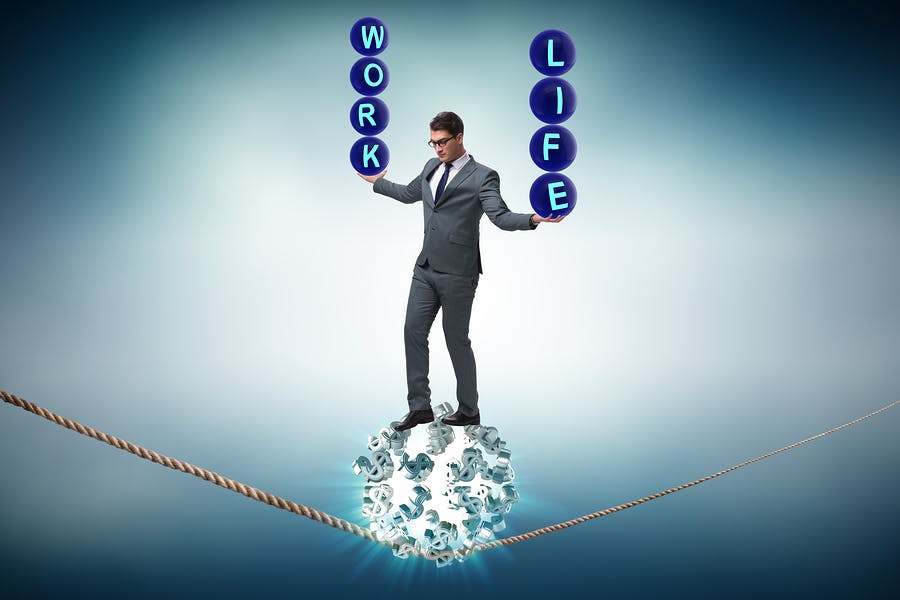Unlimited vacation. Free gym memberships. Nap pods. Such “perks” are increasingly commonplace — viewed as a smart engagement tool and a key strategy in driving workplace culture. But when it comes to improving work-life balance and helping employees feel rested and productive, is a nap pod really the answer?
Perhaps not, according to some experts. “Many of these perks keep people at the workplace whether they’re being productive or not,” Lotte Bailyn, professor emeritus at the MIT’s Sloan School of Management, told the BBC.
But for others, such perks acknowledge that “work-life balance” is unachievable in today’s 24/7 work world. Instead, the goal should be “work-life integration,” and a perk like on-site laundry helps achieve that.
What is it workers most want? It’s flexibility.
As the lines between work and life become increasingly blurred, we asked company leaders and others who work directly with them where they stand, and how they think other companies should approach the issue. Here’s what they had to say.
 “I actually don’t think it’s constructive to think in black-and-white terms at all.”
“I actually don’t think it’s constructive to think in black-and-white terms at all.”
– Anna S.E. Lundberg
Career Coach
Lundberg believes work is not separate from life, but an inherent part of it — whether you’re working a standard white-collar 9-to-5 job or a remote freelance gig. “If you hate those hours that you’re spending working — whether it’s four hours or 40 plus — then no amount of life’ after work is going to make up for that,” she says.
 “I think the 9-5 work day model is becoming more obsolete.”
“I think the 9-5 work day model is becoming more obsolete.”
– Sanjay Govil
founder of Infinite Computer Solutions
Strictly adhering to a 40-hour work week is becoming increasingly difficult, says Govil. Between work schedules, picking up kids, scheduling doctor’s appointments and taking vacations with family, striking a balance requires flexibility on behalf of the employer and employee.
“I’ve always been a firm believer in performance based work days,” he says. “I am interested in employees meeting their deliverables and taking care of customers’ needs. I’m less concerned as to what exact hours they’re putting in.”
 “I am a firm believer in finding a true work-life balance.”
“I am a firm believer in finding a true work-life balance.”
– Patrick Antinozzi
Owner/Editor of RapidWebLaunch
Would any of us actually work if we didn’t have to make a living to support ourselves? Antinozzi doesn’t think so. He says his favorite motto is “work to live, don’t live to work,” and advises employers to allow workers the time to fulfill their personal lives.
“With this new philosophy of blending [work and life], many are doing the exact opposite, and neglecting their personal lives in the process,” he argues.
 “Striking a hard separation is almost impossible because of mobile devices and social media.”
“Striking a hard separation is almost impossible because of mobile devices and social media.”
– CJ Johnsonfounder of Januel+Johnson
Instead of trying to shoehorn the outdated ideas of a 9-to-5 into the modern workplace, Johnson points to contemporary solutions for finding balance: trusting individuals to set their own deadlines, encouraging more in-person, screen-free team brainstorming, and avoiding “time wasters” like checking your email or texts every five minutes.
“When and how you get (a project) done to the best of your own abilities is up to you. I’ve found this method to be empowering for the team and produce amazing results,” says Johnson.
This article originally appeared on ReWork, a publication exploring the future of work.
